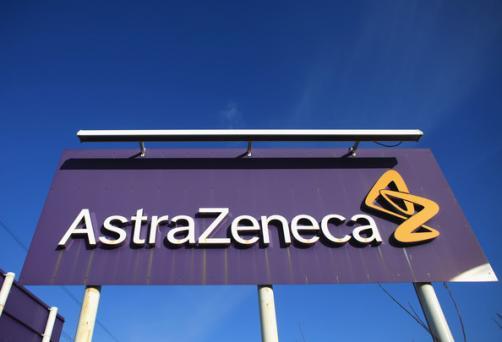AstraZeneca files Imfinzi for groundbreaking lung cancer use

AstraZeneca has filed Imfinzi in a new earlier setting to treat non-small cell lung cancer, setting it up for an expected blockbuster niche in treating the disease.
The FDA has now accepted a filing for Imfinzi (durvalumab) for patients with locally advanced, stage 3, unresectable non-small cell lung cancer, whose disease has not progressed following platinum-based chemoradiation therapy.
This is one stage earlier than when patients currently receive immunotherapy treatment, and if approved in this setting, Imfinzi could bring about a huge change in how lung cancer is treated.
The current standard of care for these patients is active monitoring following concurrent chemoradiation. But an interim analysis of AZ's PACIFIC trial showed the drug extended progression free survival (PFS) by a very significant 11.2 months.
It remains to be seen if this treatment can actually extend lives, but analysts are already predicting the indication could add $1 billion - $2 billion to Imfinzi revenues.
The FDA has granted it a six-month Priority Review, reserved for badly-needed medicines representing a significant improvement over existing therapies.
PACIFIC is ongoing and is still to produce over survival data, its other primary endpoint, and European regulators are also reviewing Imfinzi in this use following a filing last week.
The filing will help AstraZeneca maintain its momentum in immuno-oncology, where it had suffered one major setback earlier this year.
Imfinzi came up short in the MYSTIC first-line lung cancer trial in the summer, where a combination of Imfinzi and tremelimumab failed to produce convincing progression-free survival data.
This was a serious blow for AZ, which had been hoping to take on Merck's rival immunotherapy, Keytruda (pembrolizumab), in this highly lucrative indication.
Chi-Med combo shows promise
Further back in the lung cancer pipeline, AZ has also announced that its drug being co-developed with Hutchison China MediTech (Chi-Med) has demonstrated promising activity in shrinking tumours in lung cancer patients.
China is expected to play an increasing role in drug development over the coming years as government has published plans to accept data from overseas patient cohorts, in a bid to encourage more drug development.
The country has huge potential for drug R&D because of the size of its population and its growing investment in healthcare.
AZ combined savolitinib with its EGFR-targeting drugs Iressa (gefitinib) and Tagrisso (osimertinib) in two phase 1b studies.
Savolitinib is designed to prevent cancers developing resistance mechanisms to the drugs by selectively targeting c-Met, an enzyme that functions abnormally in many tumours.
Reuters reported that in one proof-of-concept study, 28% of patients with EGFR-mutated advanced non-small cell lung cancer who had previously been treated with Tagrisso showed a partial response with savolitinib.
The second study showed a 31% response in patients previously treated with Iressa. A partial response is defined as a reduction of at least 30% in the size of measurable tumours.


